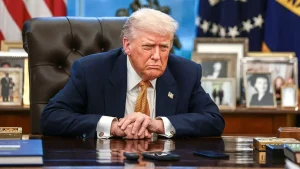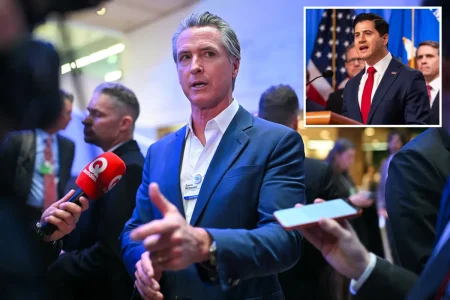MIT Stands Firm Against Trump Administration’s Conditions for Academic Freedom
In a remarkable display of institutional autonomy, the Massachusetts Institute of Technology (MIT) became the first of nine prestigious universities to decline an offer from the Trump administration that would have provided certain benefits in exchange for signing an agreement with specific provisions regarding conservative voices on campus. This development marks a significant moment in the ongoing national conversation about free speech, political diversity, and the independence of higher education institutions from governmental influence.
The Trump administration’s proposal, which was extended to several top-tier universities across the country, included a package of benefits that would have been valuable to these academic institutions. However, these advantages came with strings attached – namely, requirements that the universities implement specific measures designed to protect and promote conservative viewpoints within their academic communities. While the administration framed these conditions as promoting intellectual diversity and free speech, MIT leadership viewed them as potentially compromising the university’s longstanding principles of academic independence and its own internal governance processes for handling matters of free expression and diverse viewpoints.
MIT’s decision to reject the offer was rooted in its commitment to preserving institutional autonomy in matters of academic freedom and campus discourse. University leadership expressed concern that entering into such an agreement with the federal government would set a problematic precedent, potentially allowing external political forces to dictate internal policies regarding speech and thought. In their view, universities must remain spaces where ideas can be evaluated on their intellectual merits rather than according to political considerations imposed from outside. This stance reflects MIT’s historical commitment to maintaining an environment where research and education can proceed without undue external influence or politically motivated constraints.
The offer to the nine universities comes amid intensifying national debates about the perceived political leanings of academic institutions and whether conservative perspectives are adequately represented and respected within them. Conservative voices have increasingly claimed that universities have become dominated by liberal viewpoints, creating environments that are unwelcoming or even hostile to conservative students, faculty, and ideas. The Trump administration’s proposal appeared designed to address these concerns, but critics, including MIT’s leadership, worried that the approach would actually undermine the very principles of free inquiry and open debate that it purported to support by imposing political considerations on academic governance.
Following MIT’s lead, the other eight universities faced a critical decision about whether to accept the benefits offered by the administration or to similarly decline based on principles of institutional independence. The situation highlighted the delicate balance that universities must maintain between engaging constructively with government entities that provide crucial funding and support, while also preserving their essential autonomy to determine their own educational and research priorities, as well as campus policies. This tension between cooperation and independence has long characterized the relationship between higher education institutions and the federal government, but the explicit political nature of the proposed agreement brought these tensions into particularly sharp relief.
The episode ultimately underscores the vital importance of maintaining the independence of educational institutions from political pressures, regardless of which party controls the White House. Universities serve society best when they can pursue knowledge and foster learning environments based on academic values rather than political considerations. MIT’s decision to decline the Trump administration’s offer, despite the potential benefits, demonstrates a commitment to preserving this independence even when faced with attractive incentives. As the national conversation about political diversity on campuses continues, this incident serves as a reminder of the complex considerations that universities must navigate when balancing external relationships with their core academic missions and values.







